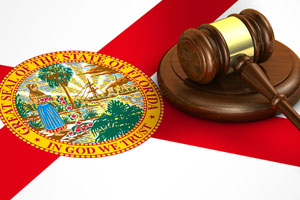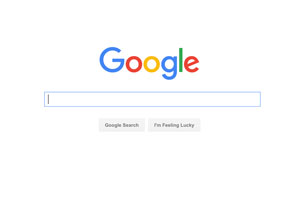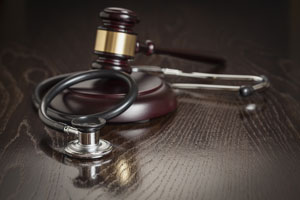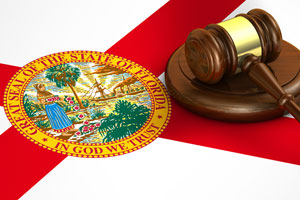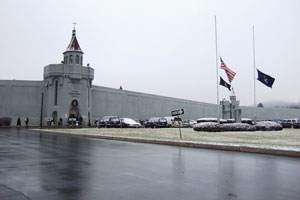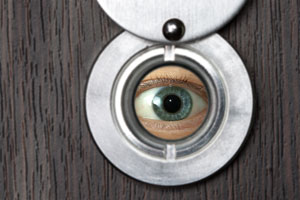Despite its financial success, the NexGen knee implant has a troubled history. Several versions of the device, including “high flex” implants that are intended to increase the knee’s range of motion, have prompted litigation due to a high failure rate.
The NexGen High-Flex Knee Replacement is a particularly controversial device that some experts, including surgeons who implant it, regard as problematic. When the implant fails before it reaches the end of its expected life, patients must undergo replacement surgery, sometimes many years before they expected to go under the knife again. Patients complain that components of the device loosen prematurely, making knee movement both painful and difficult.
Thousands of patients who blame NexGen failures on a defective design have sued Zimmer Biomet, the device’s manufacturer. Zimmer Biomet denies that the implants are defective. Many of the lawsuits have been consolidated before a federal judge in Illinois. The first case ended in a jury verdict for Zimmer after the judge excluded some of the plaintiff’s expert testimony. The second case was recently dismissed after the judge concluded that critical expert testimony was inadmissible under the federal Daubert standard.
First Bellwether Trial
About 900 NexGen lawsuits have been consolidated before Judge Rebecca Pallmeyer in Illinois. Multidistrict litigation rules that govern the consolidated cases anticipate the early trial of a few representative lawsuits. Those “bellwether cases” are intended to expose the strengths and weaknesses of the evidence on both sides and to encourage settlement of the remaining claims.
In the first bellwether case, Zimmer argued that the testimony of two experts should not be admitted. The judge decided that Dr. Thomas Brown’s testimony regarding loosening of the device’s tibial component was relevant and reliable. The judge determined that Dr. Joseph Fetto was qualified to testify about biomechanics, but excluded his testimony regarding the risk that the devices’ tibial and femoral components would loosen, the adequacy of Zimmer’s warnings to patients, and the adequacy of Zimmer’s product testing. The court concluded that those aspects of his proposed testimony were not based on a reliable methodology.
The first bellwether case went to trial last year. After three weeks of testimony, the jury found in favor of Zimmer.
Second Bellwether Trial
Theodore Joas contended that the tibial component of his NexGen Flex implant loosened, creating the need for new surgery, because of the product’s defective design. Joas relied on the expert opinions of Dr. Brown as well as those of a statistician to establish that the implant’s design made it prone to loosening.
Joas relied on Dr. Fetto’s expert opinions to prove that the defect caused Joas’ implant to loosen. In an attempt to remedy the problems that caused parts of his testimony to be excluded from the first trial, Dr. Fetto revised his methodology and submitted a new report.
Zimmer again challenged Dr. Fetto’s proposed testimony. Zimmer also moved for summary judgment, contending that without Dr. Fetto’s proposed testimony, the plaintiff could not prove that the knee implant was defectively designed.
Dr. Fetto’s Expert Opinions
In the first trial, the court concluded that Dr. Fetto’s report did not explain how the studies he cited supported his conclusion that the implant’s design contributes to its loosening when patients flex their knees. The court also faulted Dr. Fetto for failing to explain why the product’s design, rather than other factors, caused the implant to loosen.
In preparation for the second trial, Dr. Fetto changed his methodology. He relied on “differential etiology,” a process of elimination that doctors use to identify the cause of an ailment. That method assumes that by identifying every potential cause and ruling out all but one, the one that remains must be the cause of the problem.
Dr. Fetto made a list of potential causes for the loosened implant, including such things as trauma, infection, surgical error, and qualities attributable to Joas’ bones, weight, and activities. He found no evidence to suggest that the loosening was caused by Joas’ surgery, by unusual activities that would have stressed the implant, or by medical problems such as infection or bone disease. Having ruled out all other problems, he determined that mechanical failure was the sole remaining cause.
Daubert Ruling
In response to Zimmer’s Daubert motion, the court ruled that “differential etiology” is a reliable methodology, but that Dr. Fetto’s application of the methodology was not reliable. The court first observed that Dr. Fetto failed to cite adequate evidence to support his opinion that certain kinds of stress cause the NexGen device to pull away from the tibia.
The court then concluded that Dr. Fetto misapplied the “differential etiology” methodology because he “failed to follow identifiable standards for including or omitting potential causes for Joas’s knee failure.” In particular, Dr. Fetto’s report did not explain why he failed to “rule in” the possibility of osteolysis (loosening that results from cement debris and polyethylene wear) or defective cement. The court noted that Dr. Fetto may have considered those potential causes, but the language in his report was insufficiently specific to explain why they could not have caused the implant to loosen.
Oddly, after criticizing Dr. Fetto for failing to “rule in” two remotely possible reasons why the device might have loosened, the court criticized him for ruling in the possibility that the device was defective. The fact that hundreds of patients have experienced premature failure of NexGen knees, as well as statistical evidence and physician complaints about its premature failure, would seem to provide ample reason to rule in a product defect as a suspected cause of the device’s loosening in Joas’ case.
Finally, the judge complained that Dr. Fetto ruled out certain potential causes of loosening for reasons that the judge believed to be “inconsistent.” That sounds very much like an evaluation of the expert’s credibility, which is never an appropriate consideration for a judge who applies the Daubert standard.
In the end, the judge excluded Dr. Fetto’s expert opinion. And since Joas’ proof of causation rested on that testimony, the court granted summary judgment in favor of Zimmer.
The Problem with Daubert
Some observers will cheer the judge’s ruling and others will condemn it. There is no question that the judge carefully parsed Dr. Fetto’s expert opinions, but the question is whether the judge exceeded the court’s proper role by doing so.
Many court decisions suggest that the potential weaknesses in an expert’s analysis should be explored on cross-examination and evaluated by a jury. If Dr. Fetto did not provide a complete explanation for his failure to rule in (and then rule out) remote possibilities for the implant’s loosening, his report makes clear that he did consider them. Courts with a more liberal view of Daubert might rule that Dr. Fetto’s considered decisions about how to apply the differential etiology methodology should not be second-guessed by a judge, since doing so arguably usurped the jury’s role.
The problem with Daubert is that the standard draws no clear line between the evaluation of an expert’s methodology (which is the judge’s limited function as a gatekeeper) and the evaluation of an expert’s conclusions (which is the jury’s responsibility). Cases are widely divided as to when an expert’s application of a methodology should be evaluated by a judge and when it should be evaluated by a jury.
There is little reason to believe that juries are less able than judges to evaluate scientific evidence. A jury might have accepted Dr. Fetto’s conclusions as providing the most reasonable explanation of the implant’s loosening, even after the potential weaknesses of his analysis were exposed on cross-examination. As legal scholars have warned, when a judge excludes evidence that a jury might find persuasive, “a judge may risk denying a jury the opportunity to consider important parts of a causation puzzle.”



